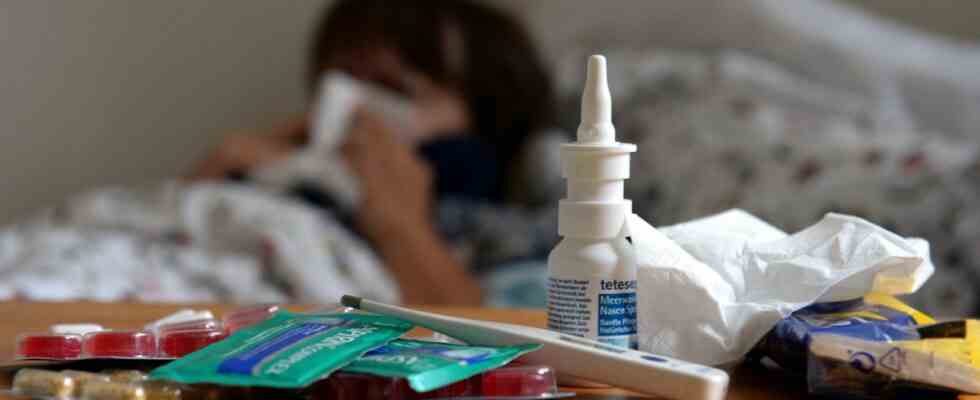Canceled train connections, closed daycare centers, empty offices – an unprecedented wave of illnesses is currently affecting Bavaria and is increasingly affecting public life. Only at the weekend had the intensive care physician Christian Karagiannidis spoken of a historically high level of sick leave: “I have never experienced anything like that,” said the President of the German Society for Internal Intensive Care Medicine and Emergency Medicine. The reason for this is a combination of flu, RS virus, corona and other respiratory diseases.
In the city of Augsburg, this means in concrete terms: Some of the municipal daycare centers had to be closed because both the staff and the children were ill. Martina Wild (Greens), mayor and speaker for education, speaks of an “unprecedented challenge”. Even at the height of the corona pandemic, the illness rate in Augsburg’s municipal day-care centers was not as high as it is now, she says. About 30 percent of the employees in the municipal facilities are currently ill. Between 15 and 20 people reported almost every day because they could not come to work – an “extremely high rate”. Four of more than 50 facilities are currently completely closed, and nine other daycare centers close earlier because there is a lack of staff.
In the last week before the start of the holidays, the various viruses also hit the schools. The situation in primary schools is more than serious, says Simone Fleischmann, President of the BLLV. Children would have to be sent home after the third period or entertained by the caretaker and the secretary. One is prepared for the fact that there will be waves of illness in winter, but now one has a situation “that has never existed before”. According to her, this is due to the fact that the number of cases of illness is particularly high this year, and on the other hand to the “blatant shortage of teachers”, which there is anyway, says Fleischmann. “Most headmasters are afraid of the time after the Christmas holidays” because there are always a lot of cases of illness.
There are also problems with trains. Unfortunately, the high level of sick leave could lead to regional operational restrictions, said DB Regio in Munich. In Nuremberg, for example, there are bus and train failures because so many drivers are sick, says Barbara Lohss from VAG Nuremberg. Between 18 and 20 percent of the staff are on sick leave, which is “extraordinary”. Everyone who has a driving license is currently driving, says Lohss, including employees in the administration, but it’s still not enough. Although she hopes that the situation will ease up a bit during the Christmas holidays, because then there will be no school trips, but she also says: “We have to think about whether we can adjust the timetable again.” In October, they had already had to limit the frequency in Nuremberg due to illness, so that trains ran every 20 minutes instead of every ten minutes. A new adjustment would – if it comes – apply from mid-January.
At Audi in Ingolstadt, too, the sick leave is higher than usual, but according to a spokeswoman, there are no production restrictions. Catherine Schrenk, head of the IHK office in Ingolstadt, on the other hand, reports on companies in which up to 80 percent of the workforce was absent three weeks ago. Another problem is often that employees cannot come because their children are sick. Some restaurants and cafés would also have to adjust their opening hours because there was a shortage of skilled workers in addition to the cases of illness.
The cold and influenza wave has also long since arrived in Cham and Hof. “The activity of acute respiratory diseases has increased more significantly in recent weeks than in the seasons before the Covid 19 pandemic. Influenza in particular is tending to increase,” said a spokeswoman for Sana Kliniken, which operates both clinics. The first cases of influenza appeared in Hof in November – more than a month earlier than usual for influenza. At the current time, it is assumed that the flu epidemic will continue to increase and will probably have a greater impact this winter than last year. According to the operator, the sick leave of the staff is also higher than usual at this time of the year.
In addition, more people are suffering from Corona again in the Cham district. This entails an increased risk of infection and additional workloads for nurses and doctors. According to the spokeswoman, the number of Covid 19 patients is currently increasing moderately, but the number of corona cases treated in intensive care is stable. 32 patients are currently being treated in the isolation ward, which is located in the Sana Klinik Cham. The care of acute and emergency patients is still secured at the moment. But be prepared for an increasing double burden.

